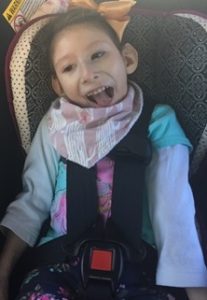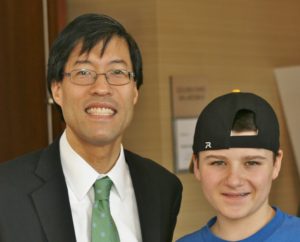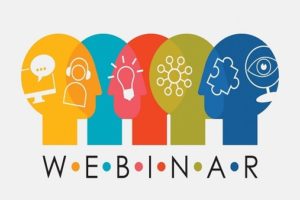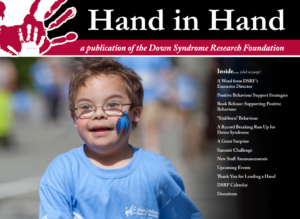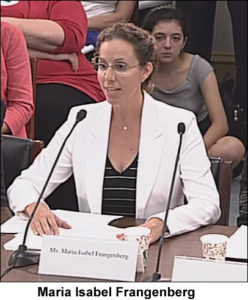This newsletter was sent July 26, 2016. If you’d like to receive our next bi-weekly digest full of a curated collection of resources, workshops, policy highlights, and action items that affect children and youth with special health care needs, please sign up here.
NEWS
Parents, Professionals, And Family Voices Provide Testimony At Advancing Care For Exceptional Kids Act Hearing
The House Energy And Commerce Subcommittee On Health conducted a hearing on July 7 to address a revised discussion draft of the Advancing Care For Exceptional Kids Act (ACE Kids Act, H.R. 546). The ACE Kids Act is a proposal aimed at improving care coordination and quality of care for children with complex medical needs. If enacted, the bill would allow Medicaid programs to establish health homes for medically complex children while providing enhanced payments to help with implementation. Cosponsored by Representatives Joe Barton (R-TX) and Kathy Castor (D-FL), the ACE Kids Act has 214 bipartisan cosponsors in the House and 38 in the Senate. At the hearing, health care professionals and parents shared their stories and provided testimony on the importance of passing the ACE Kids Act. Maria Isabel Frangenberg represented Family Voices, and a brief summary of her testimony can be found here along with a comprehensive witness statement. To listen to a recording of the hearing and read more snippets of parent and professional testimony, click here .*Above image courtesy of Children’s Hospital Association.
Make-A-Wish Grants Hayward Child An Accessible Playground: Where The Heart Of The Bay Comes To Play
Thanks to Family Voices Of California Project Leadership graduates Emelyn Lacayo and Daniel Vasquez, children with special needs who live near Hayward will now have an accessible playground to explore with their peers. Inspired by their daughter, Mia’s, love of the outdoors, Emelyn and Daniel proposed the idea of an accessible play area to Make-A-Wish since they were driving miles just to access a structure Mia could interact with using her wheelchair. The Hayward Area Recreation District voted to change the name of an existing playground, Ruus Park, to Mia’s Dream Come True: Where The Heart Of The Bay Comes To Play, and make accessible changes. Planned modifications include incorporating softer materials, building accessible swings and roundabouts, and improving the walkways. For more information, click here.
Upcoming Kid’s Rural Health Conference In Redding, Transition Fair In Sacramento
On Friday, Rowell Family Empowerment Center in Redding is hosting a free Kid’s Rural Health Conference. Topics will include the California Children’s Services redesign, telehealth, Denti-Cal, and accessing services for mental and behavioral health conditions. Representatives and providers from local health plans will speak on these topics. To register, click here.
On Sept. 21, Warm Line Family Resource Center in Sacramento will host a free Transition Resource Fair where young adults and their families can learn about available options during the move from pediatric to adult care. Information on day programs, employment and college, and self-advocacy will be available. To register, click here.
Reminder: Don’t Miss Tomorrow’s Webinar, “Family Protections And Continuity Of Care In The New CCS “Whole-Child Model”
There’s still time to register! If you’re a parent or provider who lives in one of the 21 counties where children will be moved from California Children’s Services to Medi-Cal managed care beginning July 2017, this webinar is for you. Presenters from the Western Center On Law & Poverty and Disability Rights California will discuss how to keep your child’s current providers during this transition, your continuity of care rights, and your protections. They’ll also cover what to do if you have grievances, how to get a second opinion, and how to appeal decisions. To register, click here.
RESOURCES
Webinar Recording: Introducing The Senate Select Committee On Children With Special Needs
This webinar provides an overview of the Senate Select Committee on Children with Special Needs, chaired by California State Senator Dr. Richard Pan. Chief Committee Consultant Cristina Jade Peña summarizes objectives, recaps key takeaways from the first hearing held Dec. 1, 2015 (read a report from this hearing), and outlines the role of family advocates. To watch an introduction video on the Committee, click here, and to watch the webinar click here.
New Fragile X Syndrome Resources From The American Academy Of Pediatrics
The American Academy Of Pediatrics has developed educational materials for pediatricians and parents that address some of the myths and facts about Fragile X Syndrome (FXS). The handout for providers includes tips about obtaining a family history and when to seek a genetic evaluation, and the parent handout addresses what parents can do if FXS is suspected or recently diagnosed.
Catalyst Center: Early/Periodic Screening, Diagnostic, And Treatment (EPSDT) Section
The Catalyst Center has a wealth of information on their Public Insurance Programs And Children With Special Health Care Needs: A Tutorial On The Basics Of Medicaid And The Children’s Health Insurance Program section. They’ve recently expanded this tutorial to include a section on EPSDT that provides information on covered services, youth in transition, youth in foster care, managed care, Title V, and autism. To read the new section, click here.
WEBINARS
July 27: Building Community Alliances Based On Trust: Two Member Experiences
Sponsor: Children’s Hospital Association
More information and registration here.
July 27: Recommendations For Nonopioid Treatments In The Management Of Chronic Pain
Sponsor: Centers For Disease Control And Prevention
More information and registration here.
July 27: Eliminating Barriers To Innovative Medications
Sponsor: Mended Hearts
More information and registration here.
July 27: Building Effective Partnerships Between Pediatrics And Public Health: Lessons Learned From The Practical Playbook
Sponsor: American Academy Of Pediatrics
More information and registration here.
July 27: Harnessing The Power Of Data To Support Kids Walking And Biking
Sponsor: Safe Routes To School National Partnership
More information and registration here.
July 27: Learning From Patient Experience: Where We Have Been, Where We Can Go
Sponsor: Patient-Centered Primary Care Collaborative
More information and registration here.
July 28: Implementing The Workforce Innovation And Opportunity Act From A Disability Perspective
Sponsor: LEAD Center
More information and registration here.
July 29: The Road To Recovery: Supporting Children With Disabilities Who Have Experienced Trauma
Sponsor: Association Of University Centers On Disabilities
More information and registration here.
August 1: Health Care And Social Service Provider Partnerships For Complex Patients
Sponsor: The Commonwealth Fund
More information and registration here.
August 2: Patient Navigation: Care Coordination Meets Peer Support
Sponsor: Genetic Alliance
More information and registration here.
August 2: Classroom Management Supports For Attention Deficit Hyperactivity Disorder Behaviors In Early Childhood Education Settings
Sponsor: National Resource Center On ADHD
More information and registration here.
ARTICLES
“Meet Susan Tom, The Super Mom Of 11 Children With Special Needs“
“A New Family: Rescue Couple Adopts Four Siblings With Disabilities“
“As Undocumented Children Enroll In Medi-Cal, Some Clinics See Uptick In Patients“
“Miracle Manor Helps Parents Focus Finances On Their Children’s Health“
“Despite Federal Directive, Some With Autism Still Denied Applied Behavior Analysis“
“Autism Wandering Bill Gains Senate Approval“
“Helping A Child Manage A Chronic Illness“
“In First, Insurer To Offer Applied Behavior Analysis Coverage Nationwide”
“California Mental Health Organizations To Receive $13 Million Boost“
“How To Help Kids Cope With Violence In The Media“
“A Cast With Down Syndrome Brings Fresh Reality To Reality TV“
“Fashion’s Newest Frontier: The Disabled And The Displaced“
“Pokemon Go Is A Game Changer For Son With Autism, Mom Says“
“Young Adults Can Face A Challenging Path To Health Insurance“
“A Cavity-Fighting Liquid Lets Kids Avoid Dentists’ Drills“
“Georgia’s System For Segregating Children With Disabilities Resists Calls To Reform“


